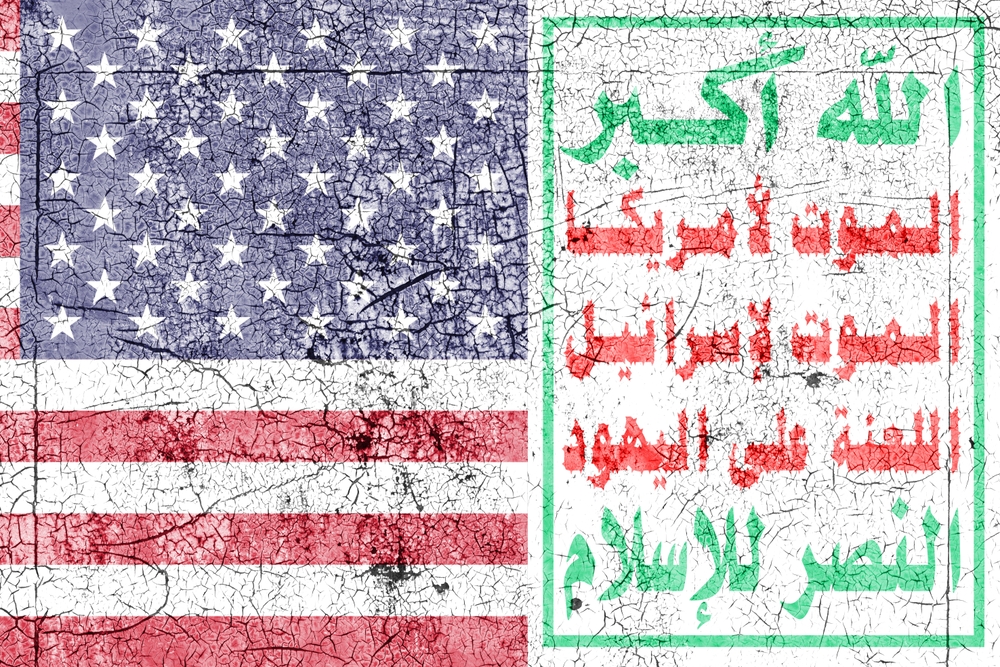IN THE MEDIA
Trump needs to hit Iran where it hurts: Tehran, not Yemen
March 30, 2025 | Oved Lobel

Jerusalem Post – 30 March 2025
The Trump administration’s renewed bombing campaign against the Houthis in Yemen features the correct rhetoric against the Iranian regime, but so far, appears short on translating that rhetoric into kinetic action.
If US President Donald Trump wishes to avoid yet another unsuccessful and costly failure – both financially and in terms of munitions expenditure – to restore freedom of navigation in the Red Sea, the current operation will need to be expanded. It must include a ground component using local Yemeni anti-Houthi forces, a far more dedicated interdiction element, and strikes targeting the Iranian regime itself.
Thus far, although the operation is clearly coercive rather than merely defensive or retaliatory and not calibrated to avoid casualties or reduce escalation risks – both steps in the right direction – it appears to be little more than a more aggressive version of the Biden administration’s Operation Poseidon Archer.
But no matter how intense the US bombing gets, it is very unlikely to force the Houthis to halt attacks. Any successful operation would have to involve substantial strikes against the Iranian regime, something the administration, at least rhetorically, recognizes.
President Trump posted on his Truth Social platform on March 17, “Every shot fired by the Houthis will be looked upon, from this point forward, as being a shot fired from the weapons and leadership of IRAN, and IRAN will be held responsible and suffer the consequences, and those consequences will be dire!” National Security Advisor Mike Waltz also emphasized that Iranian targets would be “on the table.”
To date, however, no such action has been taken.
That needs to change for two primary reasons.
First, the Houthis – more correctly known as Ansar Allah (“Partisans of God”) – are not independent decision-makers.
The organization is a direct outgrowth of the Islamic Revolution that conquered Iran in 1979 and is a veritable branch of the guardians of that Islamic Revolution, the IRGC, much like its sister group in Lebanon, Hezbollah. Indeed, an IRGC Quds Force brigadier-general and his Hezbollah deputy sit on the Houthi “Jihad Council,” the group’s supreme decision-making body.
The de facto commander of its missile and drone forces is the infamous IRGC-QF commander in Yemen, Abdul Reza Shahlai, who ordered and directed the opening salvo in 2023 against international shipping. All Houthi attacks are planned, directly ordered, and overseen by IRGC commanders, including from Hezbollah, stationed in Yemen. All components, weapons, and nearly all targeting intelligence used in the attacks are from the IRGC.
Thus, Iranian assets in or near Yemen, particularly intelligence ships like the Behshad and Safiz, are critical targets to degrade the IRGC’s capacity to close the Red Sea or attack naval vessels. Furthermore, the actual decision-makers behind Houthi piracy are in Tehran, not Sanaa. It is they who need to face not only economic pressure but also targeted strikes that threaten their ability to control their regional Islamic empire, of which Yemen is but a satrapy.
Second, if the president is yet again blustering with no follow-through, it could be the coup de grâce to already severely eroded US credibility and deterrence. Another North Korean “fire and fury” moment with no action – especially after threatening Hamas multiple times with no action – will be seen by US adversaries as a green light to do whatever they want.
Unfortunately, Trump has made very clear in word and deed over the past decade that he’s not interested in getting involved in a serious overseas conflict, suggesting that the chances of serious strikes against Iranian regime targets are slim.
An even worse outcome, however, would be a repeat of the disastrous deal with the Taliban, in which Trump loses patience with a protracted bombing campaign, as he did in Afghanistan. Trump could make a worthless agreement with the Houthis in which they promise not to target American ships and then claim victory, potentially even withdrawing US troops and assets from the region, something he tried and failed to do in his first term.
It doesn’t help that Russian President Vladimir Putin, who Trump trusts implicitly, is a strategic ally of the Iranian regime and, aside from engaging in talks to provide the Houthis with anti-ship missiles and other materiel, has also provided targeting intelligence to the Houthis for their campaign against international shipping and Western navies. This even allegedly included Russian military intelligence advisers deployed in Yemen.
If the administration’s rhetoric reflects its actual intent and is translated into concrete action, then this campaign could eventually succeed where others have failed. The alternative, in which, despite the administration’s tough rhetoric, the US ineffectively bombs the Houthis for several days or weeks with no ground component, no increased interdiction campaign, and no strikes against the Iranian regime, is likely to dramatically embolden already-emboldened Western adversaries.
It is paramount, therefore, that the current campaign be augmented and that the administration’s bite matches its bark.





